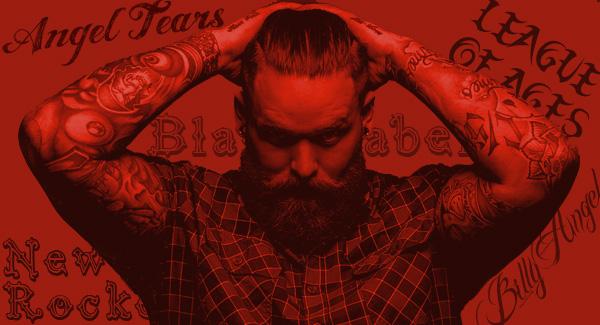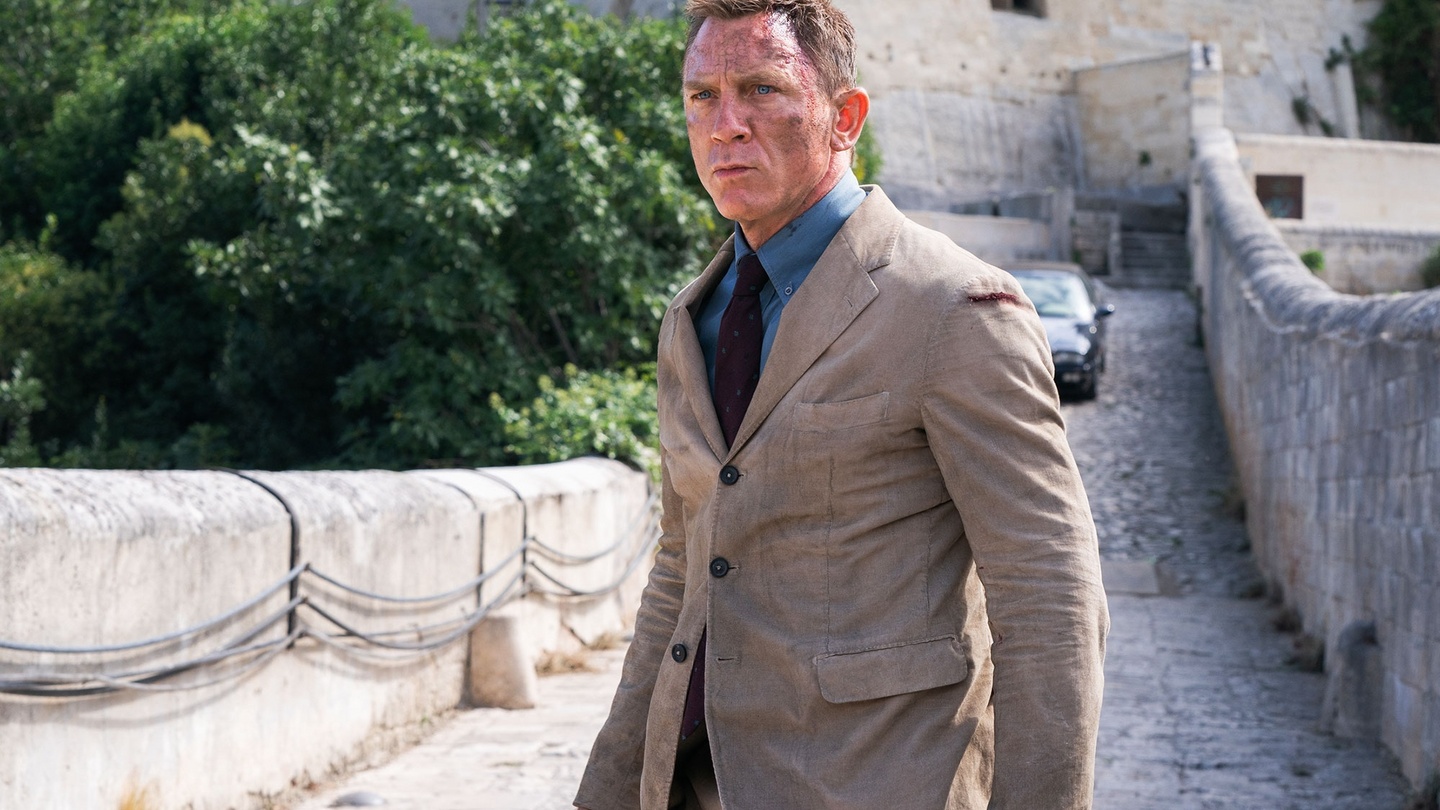I’ll admit it, I would probably watch an entire TV series that was just about James Bond’s housekeeper. Did you not know he has one? Oh, well, let me tell you about May, this funny lady who looks after Bond’s apartment in the original novels. She’s Scottish. She’s old. She knows how to cook an […]
The post Amazon Turning James Bond into Shared Universe ‘Content’ Is a Terrible Idea appeared first on Den of Geek.
I’ll admit it, I would probably watch an entire TV series that was just about James Bond’s housekeeper. Did you not know he has one? Oh, well, let me tell you about May, this funny lady who looks after Bond’s apartment in the original novels. She’s Scottish. She’s old. She knows how to cook an egg. Aren’t you riveted? Don’t you want an entire show just about May? Here’s the thing, as a Bond nerd I do want a show about May, Miss Moneypenny, or M’s random friends. I also love Kim Sherwood’s Double-O books, all about agents in the world of Bond who aren’t Bond. If there was a Marvel-like build-out of the world Bond (which arguably, in print, there has been for decades) I’d be all in.
But, I, a Bond nerd, should not be calling the shots. And based on a new explosive report in the Wall Street Journal, the person who should be calling those Bond shots is the same woman who has been running things since the 1990s. To put it succinctly, if you think Amazon is right and Barbara Broccoli is wrong, you know nothing about how art is made or why good things are good.
cnx({
playerId: “106e33c0-3911-473c-b599-b1426db57530”,
}).render(“0270c398a82f44f49c23c16122516796”);
});
According to the aforementioned WSJ exposé, with excellent and incisive reporting from Erich Schwartzel and Jessica Toonkel, Amazon brass wants to expand the James Bond brand into a sprawling franchise, complete with spinoffs about Miss Moneypenny, TV series, and perhaps, alternate Bonds, including a female James Bond. Additionally, apparently, Broccoli was offended when one Amazon boss, reportedly Jennifer Salke, referred to Bond as “content,” and bristled when a staff member said, “I have to be honest, I don’t think James Bond’s a hero.”
First of all, whether you think James Bond is a hero, or progressive, or not, is hardly relevant to the art of the films. Critics often like to suggest that retro-Bond’s sexist behaviors were acceptable in a bygone era, but this is a fallacy that misunderstands the phenomenon more broadly. Ian Fleming’s books (which are sometimes tamer than the films in terms of sexism) were often attacked in the 1950s for being provocative and “vulgar.” Even in his supposed heyday, James Bond was controversial because, on some level, James Bond should be a kind of lightning rod for culture. He’s not supposed to be squeaky clean; the character Fleming created on the page and that Harry Saltzman and Albert Broccoli refined for the cinema, is a study in extremes, a specific examination of masculinity that is neither heroic nor evil. As Fleming said in one of the last interviews before the end of his life in 1964: “Bond is detached, he’s disengaged… But he’s a believable man—around whom I try to weave a great web of excitement and fantasy.”
The idea that Bond is a cipher for the audience—regardless of their gender or sexual orientation—is one of the most important ingredients for the success of the franchise. His extreme and outsider status makes him a character that many types of people can relate to. In the 21st century, there have been new, radical re-readings of Bond, including ones in which scholars like David Lowbridge-Ellis unpack LGBTQ+ themes in the books and films.
Anthony Horowitz’s more recent novels have touched on these themes too, featuring overtly gay characters in a 1950s version of Bond. And of course, the entire history of the film franchise is an exploration of shifting mores about what it means to be James Bond. In 1995’s GoldenEye, Judi Dench’s M called Bond (Pierce Brosnan) a “sexist, misogynist dinosaur” and “a relic of the Cold War.” Any disparaging or politically undesirable things you can say about James Bond, have probably been uttered, explored, or exposed by the Bond franchise itself.
And that’s because Bond has always been an ongoing cultural conversation. Fleming’s first novel, Casino Royale begins with 007 being more closed off and sexist. By the end, he’s ready to give up everything for love, and questions his place as a pawn in an ongoing cold war. The brilliant 2006 film version of that book does much the same, and for many viewers who had never read the books, this film shook up their notion of who and what James Bond meant to them.
Arguably, the movie franchise has several inflection points like this; On Her Majesty’s Secret Service in 1969 gave us a tender Bond, who decides to marry; Licence to Kill in 1989 showed us a broken Bond who was only interested in protecting his dearest friend; and of course, No Time to Die imagined Bond as a tragic father figure. He may not be a “hero” but who cares? Should we stop loving The Maltese Falcon because Sam Spade was sleeping with his partner’s wife?
The second major point of contention, it seems, between Bond franchise leader Barbara Broccoli and Amazon is connected less to philosophy and more to the way the Bond films are made. Broccoli and her stepbrother Michael G. Wilson largely took over the family business of Eon Productions during the Pierce Brosnan era. When her father, Albert R. Broccoli, died in 1996, Barbara became the guiding light for the franchise and continues various family traditions to this day.
One of those traditions is that Bond movies aren’t made by committee. Eon doesn’t do focus groups, they don’t care about optics, and they’ve always made the Bond films—relative to other franchises—in a crucible. Partners Saltzman and Broccoli were pressured by outside forces not to cast Sean Connery back in the early 1960s but they pushed ahead anyway, knowing that his everyman vibe would appeal to huge audiences. If Saltzman and Broccoli had listened to the Amazon-like execs of their day, they would have agreed that Sean Connery seemed like an average “truck driver” and that regular audiences wouldn’t have loved him. Instead even though American distributors initially stuck Dr. No in drive-in cinemas in Oklahoma and Texas, the film overperformed and the rest is history.
Barbara Broccoli has also stuck to her guns. She was the primary champion for hiring Daniel Craig as James Bond in Casino Royale, a move that was obviously visionary. In fact, you could argue that had Casino Royale starred anyone other than Craig, Bond would have died right there in 2006. Broccoli’s eye for raw talent, and a mix of action and artistry is a massive part of what makes the Bond franchise so arresting and relevant in the 21st century. If you thought Skyfall was a masterpiece, thank Sam Mendes, of course. But also thank Barbara Broccoli for hiring him.
Why wouldn’t Amazon trust this woman to make similar artistically informed decisions? More than any other era of Bond, the best Craig films (Casino Royale, Skyfall) have aged better than perhaps any of the other entries in the franchise. And Broccoli’s instincts are a big part of that.
Finally, if this report is accurate, and that Broccoli is resisting the Marvel-izing of Bond, preferring instead to still focus on one film at a time, then she is probably right. As a Bond nerd, I may want the various spinoff shows, but perhaps those specific ideas need to stay in books and comics. The 2017 Moneypenny comic book series is great, and the upcoming Q Mysteries books sound cool. But do we need two Amazon streaming shows about these things? The answer is probably not. The movie franchise has worked for over six decades by being a movie franchise about one character. Maybe it should stay that way.
James Bond didn’t become one of the best film franchises in history through today’s standards of franchise maximalism. The true brilliance and staying power of the character are 100 percent connected to his elusiveness and scarcity. Bond endures because we can never get enough of him, and each film leaves us wanting more. The Bond franchise is mocked for this excessiveness, but if you’ve seen any of the films, you know that the best thing about them is their deliberateness and restraint. There’s actually not a lot of action in Casino Royale, and From Russia With Love is one of the slowest-burn spy movies you’ll ever see.
In terms of action, Bond films are not like Mission: Impossible or John Wick. They’re also films about an undeniably compelling character and his place in the world. If Amazon doesn’t understand that, we’re better off getting zero new James Bond movies than a half-baked version of 007, engineered by algorithms. In 1995, the first round of trailers for GoldeneEye reminded audiences that “there is no substitute” for James Bond. And that’s still true today.
The post Amazon Turning James Bond into Shared Universe ‘Content’ Is a Terrible Idea appeared first on Den of Geek.
Recommended Story For You :

Now Anyone Can Learn Piano or Keyboard

Before you spend a dime on tattoo removal you need to know something VERY important.

You can train your voice and become a brilliant singer!

Learn to Draw like a Master Artist

The World’s Largest Collection of Tattoo Designs Beautiful Designs

Turn up your speakers get ready for some epic guitar

While You Sit back & relax & and let AI do the heavy lifting for you.

ukulele lessons for beginners

You Too Can Use Mentalism Effects & Magic Tricks To IMPRESS Anyone…


Leave a Reply